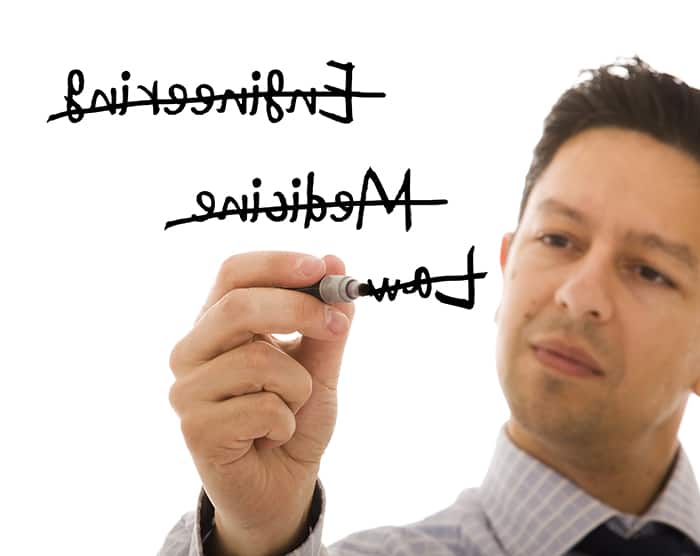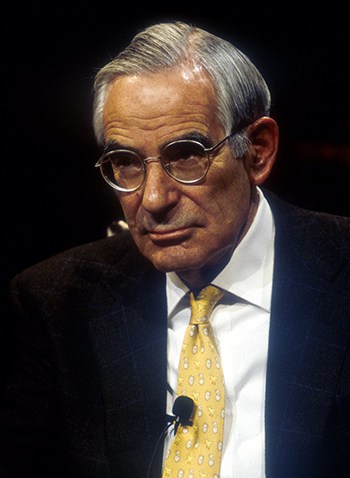
Other than the choice of a lifetime partner, nothing determines happiness so much as choosing the right kind of work.
You are at the threshold of one of the most important choices that most of you will make in your lives, the choice of your careers. We have after all in this country an inalienable right to life, liberty and the pursuit of happiness. Notice that wording, for we are not guaranteed happiness – merely the pursuit of it. Notice, as well, that the wise people who authored that phrase did not say ‘pursuit of wealth,’ for the pursuit of happiness and pursuit of wealth are by no means the same thing, nor do they by any stretch of the imagination generate the same inner sense of contentment and personal validity.
This is a critical decision for you. For other than the choice of a lifetime partner, nothing determines happiness so much as choosing the right kind of work. It is a choice about what is good for you, not what is good for others whom you greatly respect – your parents, an admired professor, your friends, a significant other – whom you suspect may be dazzled by a greater or loftier choice of profession. The choice is not about what makes them happy, but about what makes you happy. Not what seems to show that you are successful by the exterior standards of society. Not what brings you the biggest salary – particularly in the beginning when those things seem so important – and the biggest house, or the greatest respect from Wall Street, but what makes you feel complete and happy and makes you feel, for this is no small thing, like a part of something larger than yourself, a part of the community.
So the choices for you out there are not simple. It is, for example, possible to be immensely successful in your chosen field and yet in some curious way to fail at life, to get to the top and yet fail to enrich yourself.
A few years ago my colleague Russell Baker, the distinguished New York Times columnist and humorist, was asked by the Times in-house magazine to write a piece about a colleague who had just been promoted to a powerful new position. Baker went to see his own great mentor, James Reston, then the Times bureau chief. He mentioned the colleague’s name to Reston. ‘Tell me about his life,’ Baker asked Reston. ‘That’s not a life – that’s a career,’ Reston said, and he said it with great disdain. He meant that the colleague had at once done everything right, but had somehow missed the point of what he had done; he had covered the requisite big stories, had made the front page the requisite number of times, but he had in some way failed in the elemental human involvement so necessary for real pleasure in his career. He won all the prizes save the real ones, the friendships and all the fun that are at the core of what we do.

Difference Between A Life And A Career
So how can you tell the difference between a life and a career, between the authentic and the inauthentic? How do you seek out a life when so many others tell you to have a career?
There is no sure plan to it. There is no clear path for any of us, you cannot simply sit down upon graduation and chart your career, come up with some fool-proof mathematical graph, and have it work out on schedule: such and such a title and salary by 30, an even bigger title and salary by 35. It doesn’t quite work out that way. Let me suggest that by now you should know something about your inner self, what is fun, what you’re good at, and what makes you feel good about yourself. And I am suggesting as well that that often has very little to do with the society’s external reward system.
The truth is, mostly in life we stumble towards success. More often than not, we are successful only after we have failed. If things come up too easily we rarely appreciate them – the things we truly appreciate are more often than not, hard-won. It’s all right today to be a little unsure of the future, it’s all right to take a job a little different from the one you expected, or to have to wait a bit on getting into graduate school – you may learn about yourself and what’s good for you, in the long run, this way.
So try and use your lives wisely, and try and make choices – even in your professional lives – that is of the heart. Do not be too readily caught in the material snare of this society. If you want to be a botanist, poet, actor, teacher or nurse, if that is what your heart tells you to do, do not go to law school or some other graduate school on the theory that it is a great ticket, and that it will get you to a higher level in the society, that you’ll make some money for a while, and then you can go on and do the things that you really wanted to do in the first place.
It doesn’t work that way. You will, I suspect, find it surprisingly hard to escape the life you have chosen and go back to the career you originally intended. For you will almost surely become a prisoner of a lifestyle that you did not particularly seek out in the first place: an ever-larger house, a fancier car, a more luxurious vacation.
Do not be afraid to make some mistakes when you are young. Do not be afraid to try and fail early in your life. We often stumble towards the things we will end up doing best; do not be afraid to take chances when you are young, to choose the unconventional over the conventional. Often it is experienced in the unconventional which prepares you best for the conventional. Be aware that it’s all right to make mistakes, and it is all right to try at something and fail. The price of failure when you are young is much lower than when you are older.
